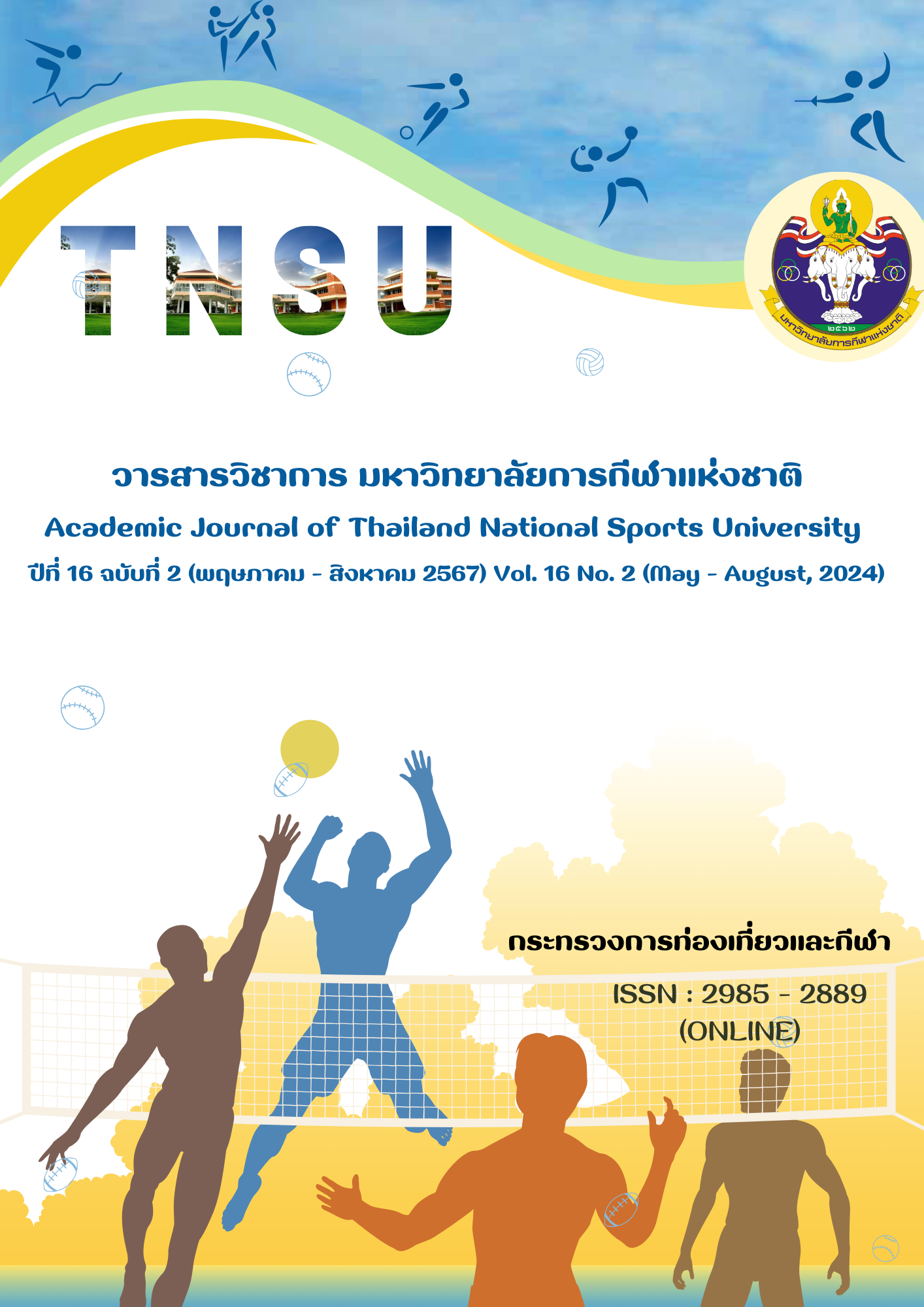EFFECT OF HEALTH EDUCATION LEARNING MANAGEMENT USING COGNITIVE COACHING APPROACH AND BRAINSTORMING ON FOOD LITERACY OF VOCATIONAL CERTIFICATE PROGRAM STUDENTS
Main Article Content
Abstract
This research aims to 1) compare the mean scores of food literacy before and after the experiment of experimental and control group students, and 2) compare the mean scores of food literacy after the experiment between experimental and control group students. The samples were first-year diploma students using a simple random sampling method to assign two sample classrooms to the experimental and control groups. The experimental group managed to learn health education by using the concept of cognitive coaching approach and brainstorming. The control group received regular health education. The duration of the research was 8 weeks, 1 lesson per week, 50 minutes per lesson on Thursday, and total 8 weeks. The research instruments were 1) a learning management plan, 2) a food knowledge test, 3) a food awareness test, and 4) a food skills questionnaire. The consistency index was 1.19, 0.73, 0.88, and 0.89, and the reliability was 0.81, 0.82, and 0.84, respectively. The data were analyzed by means, standard deviation, and t-test. The results showed that 1) the mean scores of food literacy on food knowledge, awareness, and skills of the experimental group after the experiment were significantly higher than before at the .05 level, and 2) the mean scores of food literacy on knowledge, awareness, and skills after the experiment of the experimental group was significantly higher than the control group at the .05 level.
Conclusion: Health education learning management using a cognitive coaching approach and brainstorming concepts affect students' food literacy in high vocational programs.
Article Details

This work is licensed under a Creative Commons Attribution-NonCommercial-NoDerivatives 4.0 International License.
The published article is a copyright of the Academic Journal of Thailand National Sports University. The passage appeared in each article in this academic journal is a perspective of each author which is not related to the journal. Each author is required to be responsible for all components of his/her own article. If there are any mistakes, each author must be responsible for those mistakes on his/her own.
References
Achari Maenpuen. (2018). Effects of eat smart program to promote nutritional diet of grade four students, Nonthaburi Province, Thailand. Journal of Health Education, 41(1), 126 – 137.
Anuchit Chuleekran. (2022). Effects of health education learning management using creative thinking concept and brainstorming technique on learning achievement and creative thinking for primary school students. Academic Journal of Thailand National Sports University, 14(2), 299 – 308.
Kunthalee Boriraksantikul. (2017). Development of teachers’ instructional design abilities for children during the transition between kindergarten and elementary based on whole faculty study group and cognitive coaching approach. Journal of Education Studies Chulalongkorn University, 45(3), 1 – 16.
Nuttaya Thongjun. (2016). Development of creative thinking in science of lower secondary students learning through brain storming. Journal of Graduate Research, 7(1), 1 – 14.
Patcharawadee Jainan. (2019). The development of mathematics problem solving ability of grade 11 students using the SSCS model with brainstorming technique. Journal of Education Graduate Studies Research Khon Kean University, 13(2), 23 – 33.
Rosas, Pimenta, Leal, & Schwarzer. (2019). FOODLIT - PRO: Food literacy domains, influential factors and determinants - a qualitative study. Nutrients Journal, 12(88), 1 – 31.
Saowanee Suksam. (2017). The effect of using a guidance activities package with brainstorming technique to develop creative problem - solving ability of phathom suksa ii students of Thessaban 4 (Udomwitsomjai) School in Prachin Buri Province. STOU Education Journal, 11(2), 43 – 55.
Sitaporn Suriya. (2017). The pilot study: Suitability of non - communicable diseases policy instruments to lifestyle and food consumption behavior of population in Nonthaburi Province. Governance Journal, 5(2), 104 – 123.
Suwimon Ukraisa. (2019). Food literacy: Concept of integrated learning in home economics for sustainable development. Journal of Education Review, 34(3), 128 – 136.
Suwimon Ukraisa. (2021). E - learning for food literacy learning management. Journal of Faculty of Education Pibulsongkram Rajabhat University, 8(1), 98 – 110.
Thichakorn Arthitwarakull. (2019). An application of design - based research for development of cognitive coaching process cooperating with metacognitive strategies to enhance research competencies of teachers in Srinakharinwirot University Demonstration School (Secondary). Electronic Journal of Open and Distance Innovative Learning, 9(2), 111 – 122.
Wachira Kruekamai, & Chawalit Kodsiri. (2020). The development of coaching and mentoring supervision to enhance learning management in 21st century in the service area of the office of the basic education commission in Chiang Mai province. Journal of the Association of Researchers, 24(1), 121 – 135.
Wijayaratne S., Westberg K., Reid M., & Worsley A. (2021). Developing food literacy in young children in the home environment. International Journal of Consumer Studies, 46(4), 1165 – 1177.


